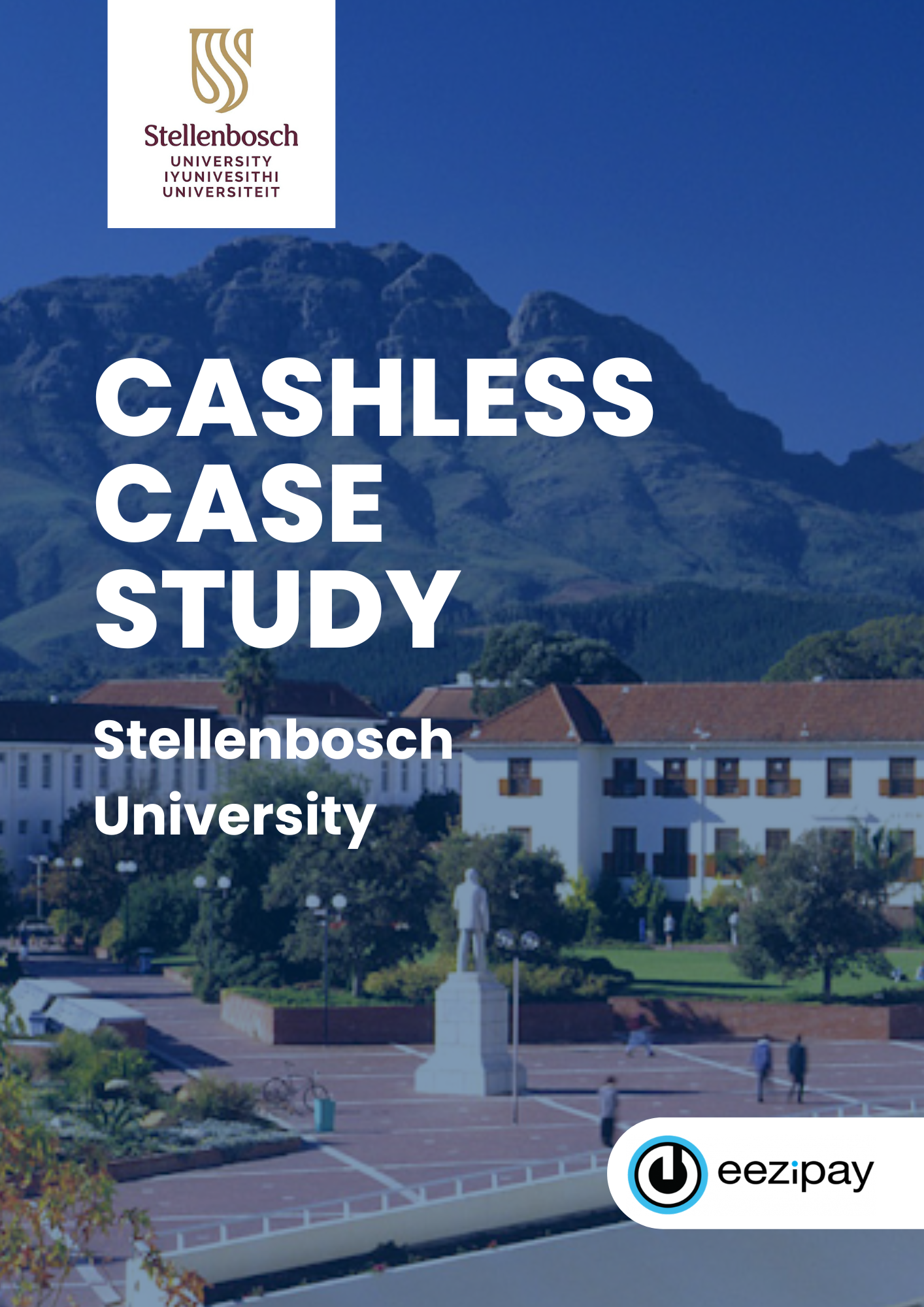A Cashless Future – 4 Important Reasons SA Schools Should Go Cashless
With the rise of mobile payments, we are already witnessing the beginning of a cashless society. But what does that mean for schools? Find out here!
The concept of a completely cashless Africa was likely thought of as a pipedream over a decade ago or perhaps something exclusive to developed nations. Understandably, Africa’s poor track record of structural reform and development poses a challenge for any prospects of attaining a cashless future.
However, with the advancement of innovative technologies and high mobile penetration, the transition to a cashless economy is gradually becoming a reality. Africa is fast becoming the region of mobile technology with digital inclusion policies at the forefront.
While developing countries such as Kenya, Ghana, Nigeria, and South Africa have made steady progress towards cashless economies, cash is still the dominant means of transacting. This is mainly due to a lack of trust and the perceived high costs of digital alternatives.
Regardless of the heavy dependency on cash, digital inclusion is at the centre of most government policies that aim to increase inclusivity with the appropriate infrastructure and financial education. This particularly resonates with the United Nations Sustainable Development Goals of promoting economic growth and supporting industry, innovation, and infrastructure.
So what role do schools play in driving the cashless transformation agenda?
In this blog article, we will briefly touch on key economic and social trends that are transpiring in the South African payment landscape and how those factors are relevant in terms of pursuing a cashless future.
Table of Contents
1. The Future Is Digital
Technology has permeated every aspect of our daily lives.
From smart/virtual assistants that can mimic human-like behaviour to using facial recognition to unlock our phones and sophisticated algorithms that can predict our buying behaviour and preferences, these types of technologies are accelerating at a fast pace and redefining the way individuals live, work, and interact with one another.
The manner in which financial transactions are conducted and delivered is no different. Thanks to technology and the development of innovative payment solutions, it is now possible for consumers to transact seamlessly, and in real-time from anywhere in the world rendering the use of physical cash less relevant.
This evidently shows the pervasiveness of technological innovation with cashless payments being at the centre of this transformation.
And it does not end there.
Another reason why the future is digital, particularly in the payment landscape is the continued trend of industry convergence with non-traditional players entering the banking space. Digital technologies have created market opportunities for non-bank players (also known as FinTech providers) from adjacent industries to enter the payments space with niche offerings that target the underbanked or underserved segments.
These technologies have disrupted conventional business models and triggered the blurring of boundaries of previously disconnected sectors such as retail, banking, and telecommunications.
Fintech providers will continue playing an active role in the payment landscape by creating innovative financial products and services that meet the needs of consumers more efficiently and inexpensively.
2. Digital Payments Have The Potential To Unleash Economic Growth
Transitioning to a cashless economy has significant benefits for the overall economic development and growth of a country. By reducing the reliance on cash, countries can potentially eliminate the black markets allowing transactions to be traced and tracked, curb corruption, create better monetary policies, and most importantly, reduce the number of cash-related crimes.
Sweden is one prime example that is leading the way towards a fully cashless economy and has great aspirations of becoming the world’s first cashless society by March 2023. This is no surprise as Sweden is one the most technologically advanced nations in the world. The amount of cash in circulation has fallen drastically over the years with more than 80% of the transactions being cashless. This has resulted in a shrinking informal economy, increased financial inclusion, booming online commerce, and a sharp decline in fraudulent activities – all of which can generate much-needed revenue for economic growth and prosperity.
Sweden’s cashless initiatives prove that implementing the appropriate infrastructure and policies can help support the transition towards cashless economies and ultimately reduce the amount of physical cash circulating in a country. In South Africa, the payment ecosystem is already witnessing a shift towards cashless alternatives evidenced by the upsurge in smartphone adoption and a highly banked population. While this may seem significant, cash remains the preferred method of transacting, especially among low-income earners.
In order to reduce the reliance on cash and encourage the use of digital payment methods, institutions such as the Payment Association of South Africa (PASA) have set out key imperatives for developing a ‘low-cost, easy-to-use real-time payment system’ infrastructure which is outlined in their Project Future Plan. This also supports the objectives laid out in the South African Reserve Bank’s (SARB) Vision 2025 which intends to achieve inclusive and sustainable economic growth through broadening and deepening financial inclusion.
3. Preparing Learners For A Cashless Future
Financial illiteracy is one of the biggest social ills hindering the general population from economically participating in a cashless future. Despite a highly banked population, the levels of financial literacy are moderately low amongst South Africans, with 49% of South African citizens considered financially illiterate. What’s even more concerning is that roughly 5% of South Africans will likely be able to retire comfortably.
As the financial landscape becomes increasingly dynamic and technology-driven, the need to have the requisite knowledge and aptitude to navigate various sophisticated and complex financial products will be paramount.
And failing to demonstrate a strong grasp of basic financial principles may ultimately lead to adverse implications such as being overindebted and poor financial decisions.
That's where your school can make a difference.
To alleviate this challenge several studies and reports have advocated for the promotion of financial education at grassroots levels such as schools. The OECD has noted that financial literacy is a core life skill for individuals to participate in modern society and therefore young individuals will need to take charge of their own financial future if they want to survive in an ever-changing and volatile environment.
One way of attaining this is to implement a cashless school system. A cashless school system essentially uses digital technology to collect various forms of educational expenses from parents and students. Not only does a cashless school system save time on administrative tasks and reduce the security risk of handling cash, but it also provides avenues for school learners to adopt and practice good financial habits at an early age.
With a cashless school system in place, school learners will be exposed to real-life scenarios that teach them basic concepts of saving, budgeting, and managing money more effectively. For instance, learners will be able to organise and categorise their expenses all in one platform and set spending limits on those expenses while keeping track of their spending monthly.
This will empower them to become financially independent adults and navigate confidently around an ever-changing financial environment.
Read more on how cashless schools can teach your children good money habits
4. Should Schools Participate In A Cashless Future?
With that being said, you are probably considering whether transitioning to a cashless environment is worth the investment.
From the above, one can deduce that there are certain economic and social factors that may or may not impede us from attaining the cashless transformation.
The truth is, the world is changing at a fast pace and if we as a country do not leverage the opportunities that come with the advancements in technology, we will be left behind.
One way or another, cashless transactions are the next evolutionary step. The good news is that our sophisticated financial payment landscape in tandem with the advancement of technology is enabling non-traditional players to enter a space that was previously monopolized and thus create agile, customer-centric, cost-effective financial products that cater to the needs of the underserved and/or unbanked market.
Your school can too benefit from these innovative payment solutions allowing for a more streamlined and safer environment. More importantly, your school will play an important role in educating and training young minds for a cashless future.
Read our blog on the benefits of implementing a cashless school system.
Thinking Of Pursuing A Cashless Future?
Are you thinking of pursuing a cashless future but unsure if it is worth the investment?
The only thing constant and inevitable in life is change and the shift towards a more cashless society is unavoidable. So let us help your school leapfrog into a cashless future!
With EeziCC, we are committed to helping schools and the broader community alleviate any challenges associated with the handling of cash. For more information, contact us at 086 133 9472 or email our support team at info@eezipay.com










